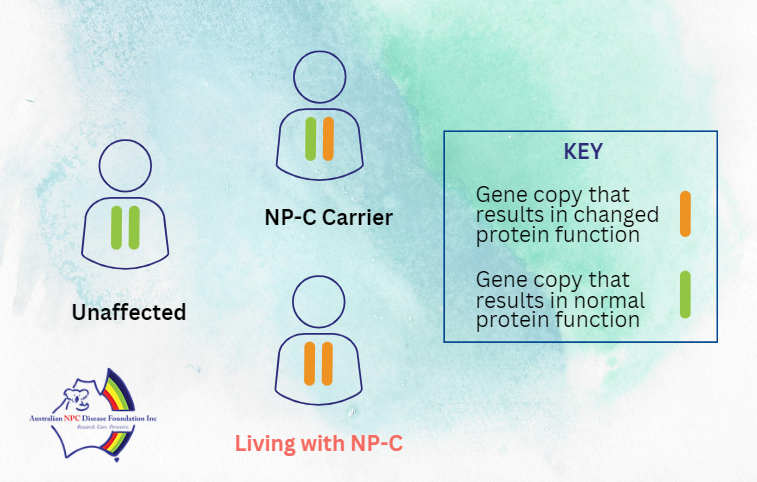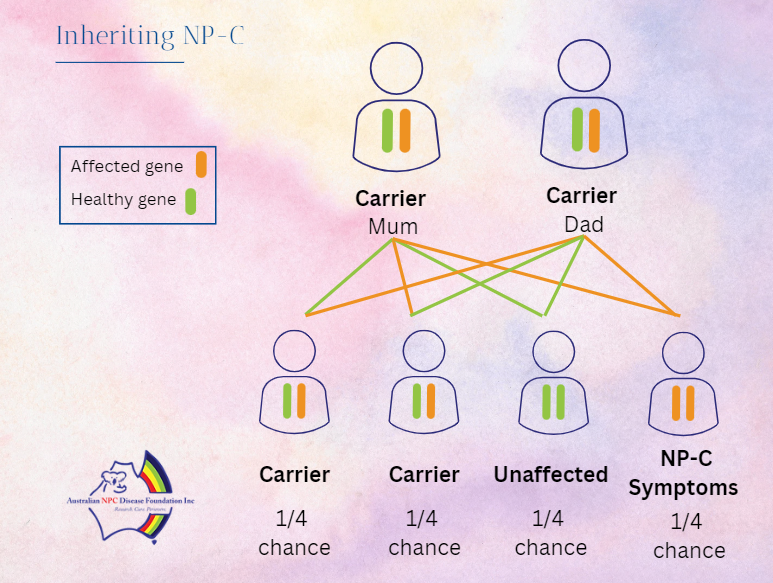NP-C Corner: Carrier Screening - What are your chances?
- Ellie Van Velsen
- Jul 3, 2023
- 2 min read
When talking with rare condition families, it is common to hear that they have gone through a ‘diagnostic odyssey’. This is essentially the years-long journey that involves a loved one seeing a range of health specialists and undergoing many tests to eventually discover their rare condition diagnosis.
But what if you knew what your chances were of having a child with a rare condition before your baby was born, or even conceived?
With carrier screening, you can know your chances of having a child with NP-C.
Carrier screening is a type of genetic test that can identify DNA changes that may increase your chance of having a child with NP-C, or a range of other inherited conditions. This knowledge may empower you to make more informed decisions regarding your family’s future.

Who are carriers?
NP-C is a recessive condition. This means that both copies of the NPC gene need to be affected for symptoms to develop.
Carriers on the other hand, only have one affected gene copy.
They carry the affected gene in their body, with the healthy copy producing enough NPC protein to keep them functioning normally.

All parents of children with NP-C are carriers of the condition. Without having an affected child or getting a genetic test there is simply no way of knowing what you carry in your DNA. As children receive 50% of their DNA from each parent, it is important to know what could be passed down.
1 in 20 people was found to carry disease-causing genes for three of the most common rare genetic conditions: cystic fibrosis, spinal muscular atrophy, and fragile X syndrome.
Shockingly, 90% of carriers had no known family history. Therefore, screening all couples regardless of family history is important when planning to start or expand a family.
If both individuals in a couple are carriers, there is a 1 in 4 chance of having a child with NP-C.

Many studies have demonstrated the benefit of this testing for couples, and projects like Mackenzies Mission are trying to show how it could be utilised on a national scale.
Guidelines recommend that testing is offered to all reproductive couples, in the hope that providing them with this knowledge will lead to more informed reproductive decision-making.
These decisions are highly personal and consulting a healthcare professional such as a genetic counsellor is strongly recommended to ensure the test is right for you.
If you're interested in learning more check out this fact sheet and this testing information page.
Stay supportive and supported,
Ellie
Collins, F. S. (2010). The language of life : DNA and the revolution in personalized medicine / Francis S. Collins. Harper.
Archibald et al. (2018). Reproductive genetic carrier screening for cystic fibrosis, fragile X syndrome, and spinal muscular atrophy in Australia: outcomes of 12,000 tests. Genetics in Medicine: Official Journal of the American College of Medical Genetics and Genomics, 20(5), 513–523. https://doi.org/10.1038/gim.2017.134
